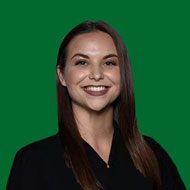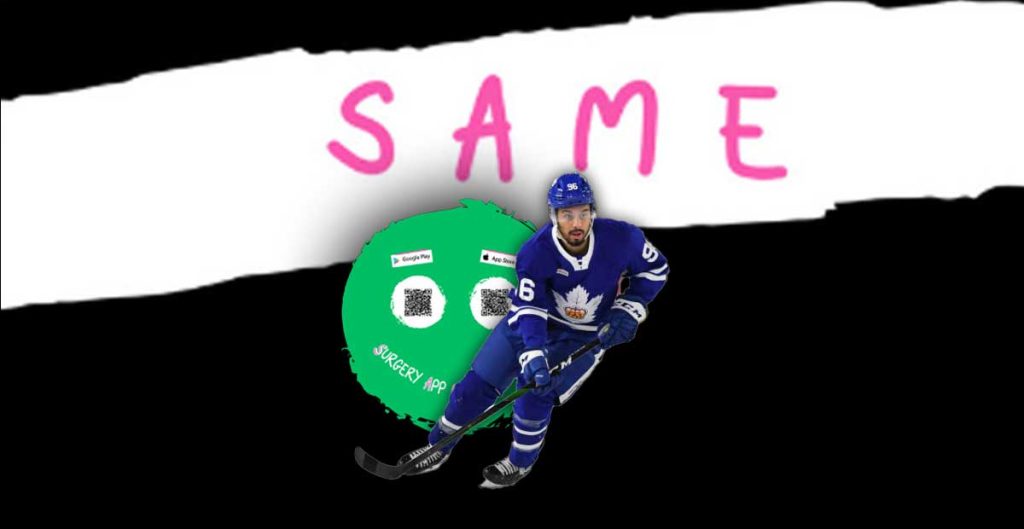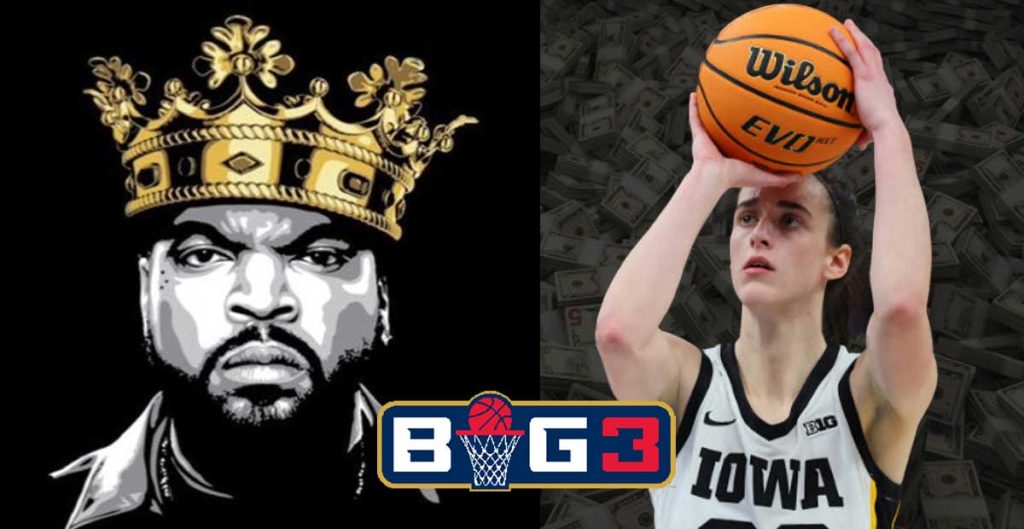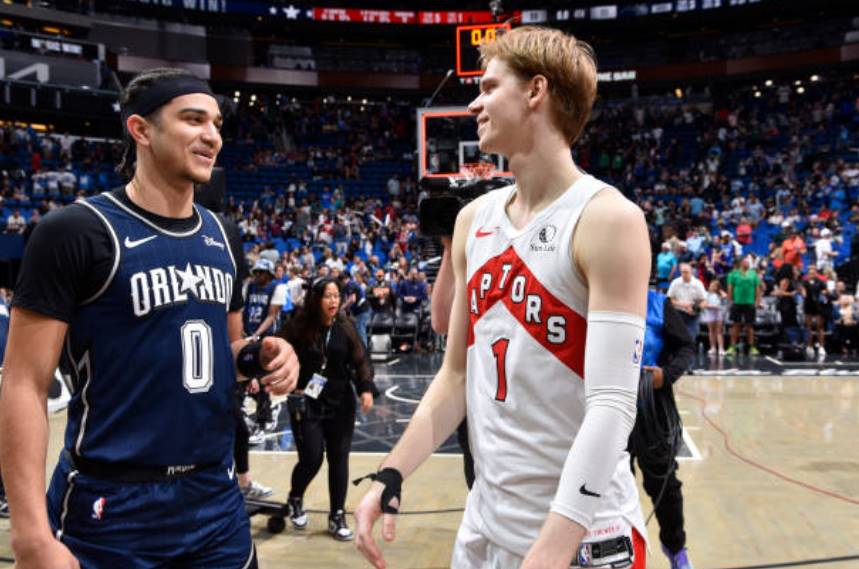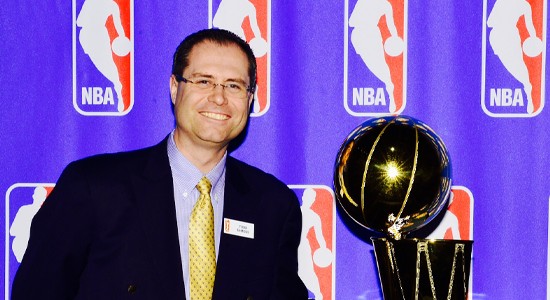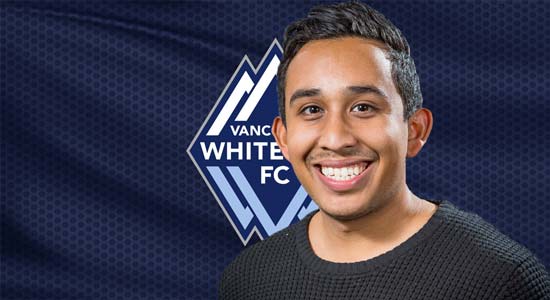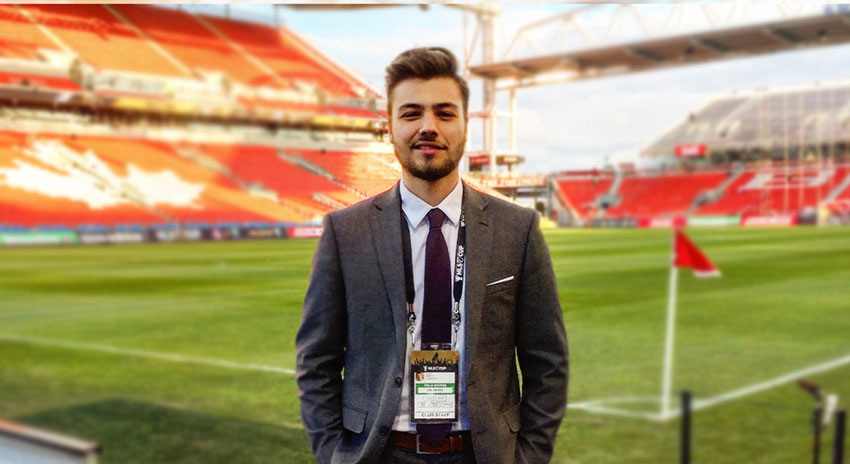
1 on 1 with Brayden Misley | Coordinator, Partnerships | Canadian Soccer Business

University provided me the framework and knowledge to start a career in sport, but elements like balancing non-typical hours, how to make a cold-call, and learning how to move a prospect down the sales cycle / pipeline are a few of the areas that I’ve developed in my career so far
Brayden Misley
Coordinator, Partnerships
Canadian Soccer Business
The Latest
Caitlin Clark Nude Shower Video: Unpacking the Leak and Online Outcry
Jontay Porter Banned From The NBA For Life
Iowa vs LSU: A Landmark Moment in Women’s College Basketball
Former NHLer Josh Ho-Sang Now A Rapper
1Tell us about your role as Partnerships Coordinator at the Canadian Soccer Business.
At Canadian Soccer Business (CSB) we are the commercial arm for a variety of soccer properties in Canada where we represent a host of sponsorship and broadcast assets.
As Coordinator, Partnerships, my role revolves around two key areas; partnership marketing and new business development. When you break that down into the day-to-day, there is definitely variance depending on the time of year or tasks at hand, but generally can be summed up in the following areas:
- Servicing
- Research for new business development and partner marketing
- Business Development
I work with Canadian Premier League (CPL) partners to bring our partnership to life through a variety of assets, such as social and digital platforms, match broadcast integration, and in-stadium activations (pre-pandemic).
Using the CPL’s Island Games as an example, this can take shape as a cross-platform program such as the Man of The Match fuelled by G, which was executed as a broadcast asset through a branded segment and player interview, and social media asset through a fan-led vote to determine the top player of the match and ultimately increase engagement with the partner.
We live in a rapidly changing environment and it is integral to stay on top of industry standards, trends, and insights to ensure we are up to date with the ideas we are pitching to our roster of partners or prospective ones. Whether it’s scouring social media, other professional sports league digital channels, looking at consumer / generational trends, or watching live broadcasts,
I strive to continuously learn how different brands market themselves, how sport leagues are working with their partners, activation ideas, and how consumers/our fans are engaging with our content.
Since starting my career in sport the way I consume content is very different. I am consistently looking at how brands are advertising on a broadcast, what activations are being executed, and what social media content is garnering a ton of engagement… essentially focusing on each major sports league and understanding how they are commercializing their product.
Whether it is managing the creative assets we utilize to help convey the story of Canadian Soccer Business, networking, making calls or creating pitch decks, another large part of my day-to-day is focused on helping us build relationships with Canadian brands.
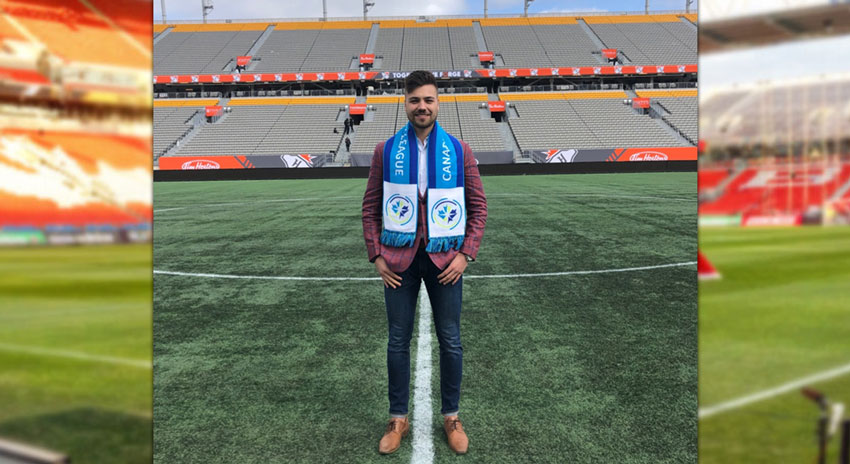
2You graduated from Sports Administration in 2017. How did the program prepare you for your current position?
It really was the best decision I could have made for an undergraduate program. With the Sports Administration program, graduates earn an HBComm degree, so a business curriculum is at the forefront.
Classes like Sport Marketing and Sport Media helped give the fundamental introduction to learning why brands choose to partner with sport properties, and how different outlets of media are utilized.
But diving deeper, it is the focus of a real hands-on approach for their curriculum that made the largest impact.
Projects like running our own events with a certain budget and having to sell our own sponsorships, a sales competition with brands and staff from corporate Canada, a case study and presentation with the Ottawa Senators focused on arena atmosphere, and a consulting trip with the Washington Nationals all led to applicable learnings within a direct business environment.
Skills like public speaking, working with a team, how to build a strong pitch deck, research, and relationship building are all very important and relevant to my job, and Sports Administration helped lay the foundation as I entered the workforce.
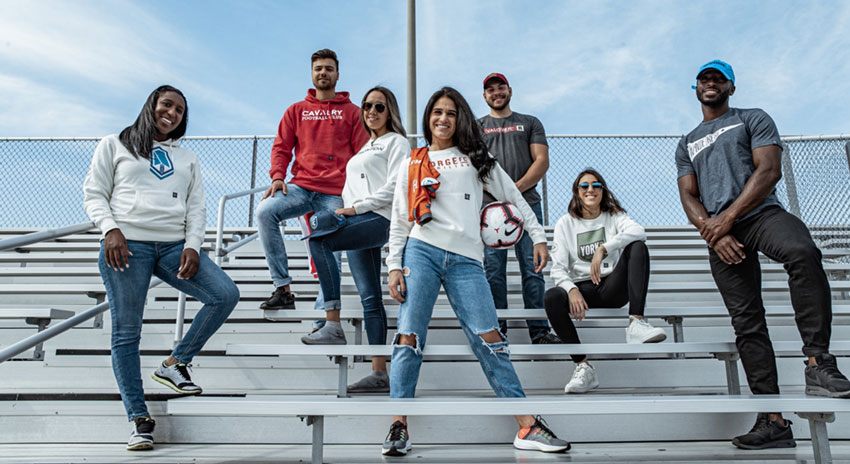
3Tell us a little bit about how you got the role you’re in today. How would you suggest sports admin students market themselves so that they stand out to future employers?
When I graduated from Sports Administration in 2017, I knew that corporate partnerships was the area I wanted to work in, as I thoroughly enjoyed the crossover of a sales and marketing focus.
After I graduated it became clear that it wasn’t going to be easy to land a job in sport in my desired area right away, and I ended up taking a sales job with a company outside of sport.
Throughout the job search my mindset was to find a position to ensure I kept moving forward while trying to network as much as possible, which is why I opted for a sales position as it helped introduce me to cold-calling, prospect out-reach, closing the sales cycle, etc.
About 7 months in I asked if I could move over to their event sponsorship team and that is where I got my first start in the field, and really started to build out my resume and skillset in partnerships.
In that role I was leading negotiations, building proposals, conceptualizing ideas, and managing the accounts… all responsibilities that would transfer to a position in sport if I opted to move in the future.
In addition, throughout my first few years outside of University, I utilized LinkedIn as a key tool to meet professionals in the industry and pick their brains on entering the world of sport, skills to develop, and their career path.
This is something I can’t recommend enough to students as you will start to create a network in your desired field and take key learnings from those who have already found success.
Eventually, a job opened up with Canadian Soccer Business, I applied, and after a couple of interviews, I was hired.
The biggest piece of advice I would give is to leverage LinkedIn, reach out to those in the field you want to work in (and ask good questions about their career path), and work on growing your resume with directly transferable experience in another role until you’re able to make your entry into sport.
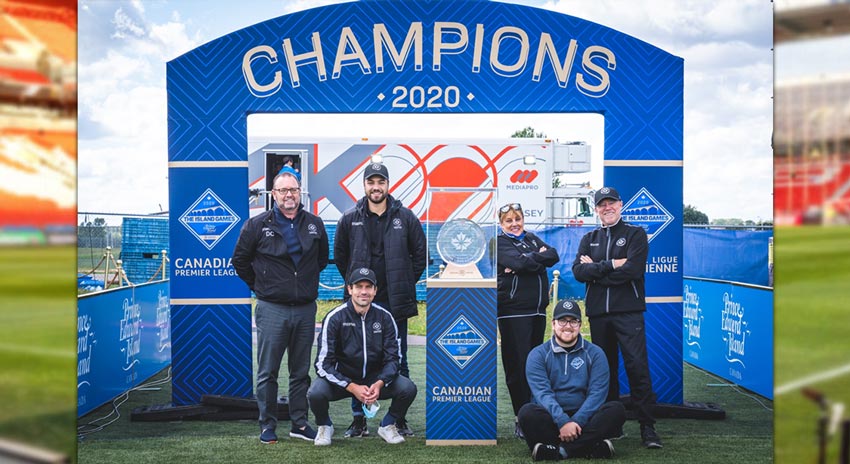
4Tell us about some areas they don’t teach you at school about working in the sport industry that you’ve picked up in your experience.
University provided me with the framework and knowledge to start a career in sport, but elements like balancing non-typical hours, how to make a cold-call, and learning how to move a prospect down the sales cycle/pipeline are a few of the areas that I’ve developed in my career so far.
For the most part, sport is live outside of the traditional 9-5, which means you need to be able to balance a work-life dynamic that isn’t traditional to other industries. Nights and weekends are common, but it is all worth it when you can feel the energy of a stadium or see the emotional connection on a young fan’s face.
Business development is one of the areas that is tough to learn in school as it really is experience-driven. How do you make a cold call and create initial interest for a prospect?
How do you provide value to a prospect to keep them interested after that first touchpoint? What questions do you ask to properly understand their business and fit? How do you tailor an offering to their business needs? How do you navigate a “no” or rebuttal an objection?
These are all questions I had coming out of school and needed to learn by jumping headfirst into the industry.
Elements like “friend hunting” where I strive to share valuable or interesting insights with a prospect (without asking for anything in return) to help nurture the relationship is an example of something I learned very early on.
Trial and error, and learning from past mistakes is the path to finding success through your own unique style.

5Soccer is such a universal sport and is able to bring so many people together. Tell us about what you love about working in soccer and how you use its widespread reach to gain partnerships.
The moment I knew I wanted to work in soccer was during my internship with TFC while taking in my first professional soccer match.
In the summer of 2016, I was fortunate to intern for TFC at a truly amazing point for the franchise. It was Sebastian Giovinco’s second season and the team had high hopes for a championship, and as a result, the fan culture inside BMO field was something I hadn’t experienced in North America before.
From the chants to the drums the passion was evident, and I immediately knew I wanted to work within this fan dynamic. That is the element of this sport that I love; the energy, loyalty, inclusiveness, and passion of soccer fans is truly unique and is one of the messages I aim to convey with potential partners.
Another message is that it is an important time for the sport. Right now in Canada, there are more registered participants in soccer than hockey, and in the last two years alone we have seen big moments like the Canadian Premier League kicking off, the rise of Alphonso Davies on the world stage,
Christine Sinclair setting the world record for most international goals, and the Men’s National team beating the USA for the first time in 34 years.
This is all leading up to 2026 where Canada is one of the host countries of the FIFA World Cup, which will bring global soccer to our backyard.
When you package that all together with the addition that soccer is one of the most accessible, affordable, and diverse sports in Canada, the rise of a soccer nation can be seen.
One other element we sell in partnerships is community and having professional soccer in communities for the first time. In the CPL we have clubs in Victoria, Calgary, Edmonton, Winnipeg, Hamilton, York Region, Ottawa, and Halifax.
For many of these cities it is the first time they have had a professional soccer team, and the first time youth athletes in those local communities have had professional soccer players in their hometown to look up to, and a visual pathway to play as a pro here in Canada.
[get_current_post_author_pic_and_name]
Partnerships Coordinator for Canada Soccer Business, Brayden Misley, gives insight into the reality of working in sport; long hours, but ultimately rewarding! He graduated and instantly started thinking of ways he could gain experience and skills that would translate into a job in sport. Once he landed a job, he was thankful for the framework that his education provided, but also recognized that many of the skills he needed to do the job, were learned through experience. Take it from Brayden, get out and learn new skills, utilize Linkedin and don't be afraid to fail because that's how you learn!

